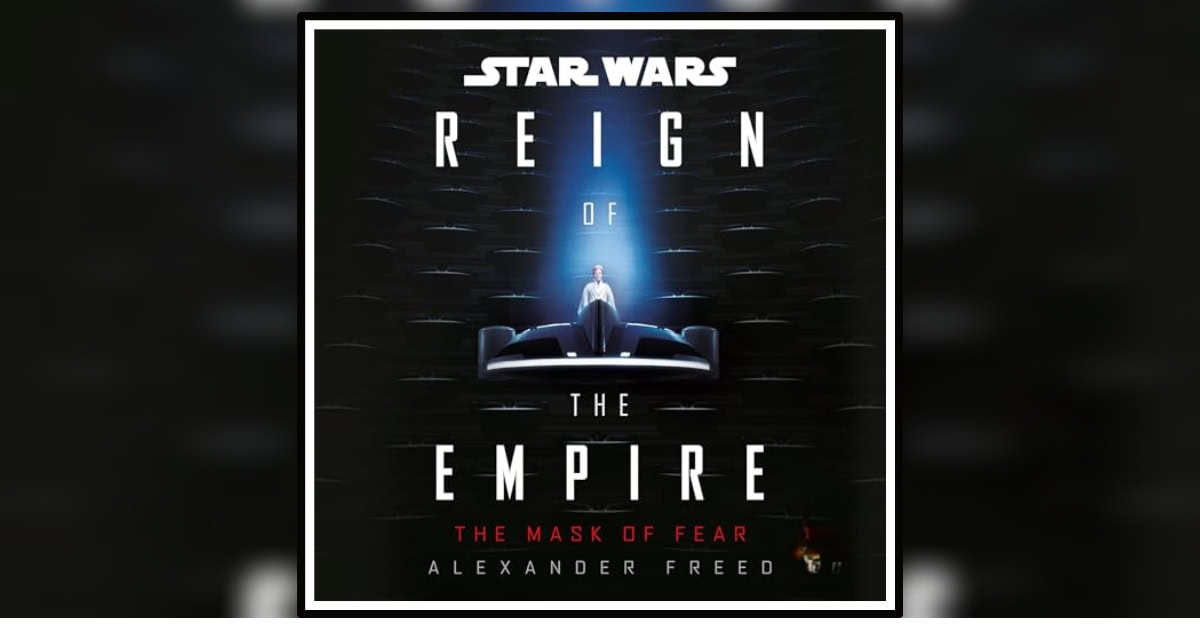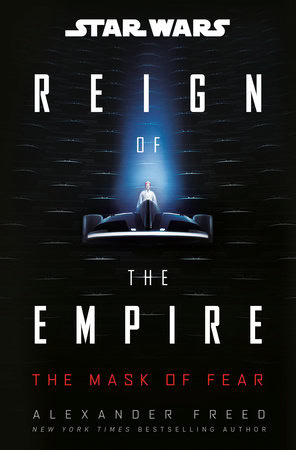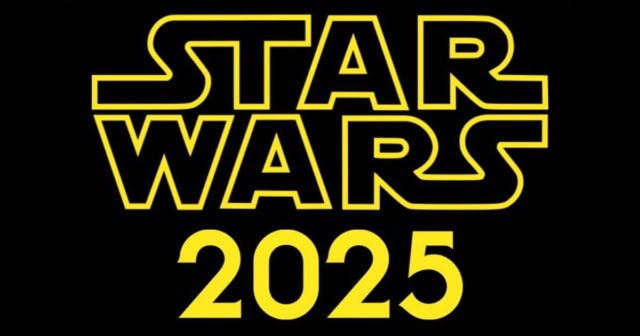Book Review: ‘Star Wars: Reign of the Empire: The Mask of Fear’ by Alexander Freed

One of the best things about Star Wars is the wide range of genres and ideas the franchise can cover. From films filled with action and adventure like The Skywalker Saga to more lighthearted shows for younger children filled with jokes and cute aliens. The idea of politics in Star Wars is something that George Lucas began considering a lot in his Prequel trilogy, the idea of a failing republic and how it could be turned into such an evil Empire is something that, at the time, wasn’t appreciated as much as it has been. Since its acquisition by Disney, Star Wars has slowly started to expand on Lucas’ ideas of the political side of Star Wars. The show Andor is the biggest example of this, a first for the franchise in being a show that almost solely deals with the politics of the Empire, the galaxy, and the fledgling rebellion and how it came to be, with much critical success. Reign of the Empire: The Mask of Fear by Alexander Freed aims to capitalize on the Andor effect and delve into the politics of the early days of the Empire.
Note: While I am reviewing this book independently and honestly, a copy has been provided to me by Random House Worlds for the purpose of this review.
The first in a trilogy (with subsequent sequels releasing yearly) The Mask of Fear intricately explores the transition from a republic into an Empire and how the Senate and people of the galaxy grapple with this change, going from a chancellor elected by the people to a man who declared himself an emperor. This book is phenomenal. Freed does an outstanding job bringing readers deep into the fictional political world and getting you invested in what that entails, you can read on to find out how.
Reign of the Empire: The Mask of Fear brings Mon Mothma into the spotlight
As mentioned, The Mask of Fear is the first in the Reign of the Empire trilogy which aims to explore the very early days of the Empire through the eyes of the three founding members of the to-come rebellion, Mon Mothma, Bail Organa, and Saw Gerrera. The book acts as an almost Andor prequel, as it lets audiences engage with the darker, political side of Star Wars and see how the Empire sets itself up to become such a totalitarian fascist force.
Despite this novel being split between the viewpoints of the three main characters (amongst a few other perspectives) Alexander Freed makes Mon Mothma the star of the novel. Her journey and actions have by far the biggest impact, and we truly get to see deep into her views on the changing galaxy and still hope to be a force for good within that. Here we see how Freed makes The Mask of Fear into such an Andor prequel feel as characters from the show, such as her husband Perrin, become such a part of the book and her life. We get to see how Mon and Perrin end up as the characters they do by the time of the show, almost recontextualizing how we view them as a couple.
Her chapters are intriguing and compelling as we see just how the Senate deals with the change from the Republic into the Empire as Mon herself, tries to deal with the strengthening power that Palpatine has over the Senate. Mon’s chapters see her struggle with democratically dealing with the Empire, as she exhausts every option to keep her fight legitimate.
Mon is attempting to launch a bill called the “Imperial Rebirth Act” which would loosen the Emperor’s grip on systems, yet legitimize him in the Senate as leader. For the reader, the plot of Mon’s attempts to destabilize Palpatine’s power becomes thrilling and engaging despite the mainly political discussions and debates over action. Her thoughts and actions become a fully realized part as Freed manages to bring her from screen to page effortlessly.

Different characters and ideologies enhance this new Star Wars novel
In much the same way, Bail Organa aims to tackle the issue of Palpatine and the Empire’s sudden power over the galaxy professionally and democratically, albeit slightly different from Mon. Freed does a wonderful job of conveying how the main characters feel about how they can take on the Empire in contrasting ways, and the attempt and fallout of those decisions.
Bail still has faith in the good of the galaxy within his chapters, as he attempts to exonerate the Jedi after discovering falsified documents about their “takeover” of the Senate and attempt on the chancellor’s life. Bail hopes that revealing the truth about the Jedi will bring down the Emperor as the people of the galaxy realize the Jedi were saving them from him, rather than trying to take over the galaxy themselves. Freed manages to bring more in-depth context surrounding Order 66 in this book from the perspective of the wider galaxy as well as dealing with Bail’s love of the Jedi, what they meant to him, and how he has dealt with the destruction of the Jedi Order.
Bail’s chapters are joined by a new character for the book named Haki, an aging undercover agent for the Empire who is becoming more and more relegated to desk work. She finds herself tagging along with Bail as she aims to spy on him and stop his journey across the galaxy to exonerate the Jedi. Her story intertwines with another character named Chemish, who is being trained by Haki to also become a spy for the Empire.
Chemish ends up being a part of Mon’s story later in the book but also has her own story as she deals with unsavory characters in the Coruscant underworld. Both of these characters end up being quite interesting side characters from Freed as they both provide more context to the galaxy coming from the perspective of someone who has moved from Republic to Empire to someone young dealing with the rest of the forgotten parts of the galaxy and Coruscant and how an Empire can affect them when the Republic barely did.
Saw Gerrera is the third main character of the book. He appears in stark contrast to Mon and Bail, aiming to deal with the Empire more radically and violently. The book bridges his character arcs from the Clone Wars, to who he becomes by the time of Andor.
Saw, however, is a far less prominent main character in this book as Freed gives us a different perspective on the character through the eyes of a new character in the book called Soujen. Soujen is a separatist assassin who has been enhanced cybernetically and now must deal with a galaxy where the separatists lost. Soujen teams up with Saw to find a separatist cache filled with weapons to take the fight to the Empire.
Freed gives us the view of Soujen and how he deals and interacts with Saw differently, bringing the points of view of the Separatists and how Saw views them and the Empire into a new light. Unfortunately we don’t see much of Saw beyond this, he gets some incredible speeches and interacts with the other main characters in pivotal moments, but he feels like he is being left as a character until they can peel back his emotional layers and motivation in a later sequel.
Final thoughts on Reign of The Empire: The Mask of Fear
Overall, I adore The Mask of Fear. The book leans heavily into the politics of the galaxy and brings a more mature, grounded feel to the franchise. Freed does an excellent job of leading us into the psyche and motivations of Mon, Bail, and Saw as they travel the galaxy, team up with all manner of characters, and debate the political state of the galaxy.
My Rating: 9/10
This book will immensely appeal to fans of Andor, feeling like a starting point for the show, but it is well worth a read for fans who want a taste of a different style of Star Wars book, away from the mysticism and the force. Alexander Freed provides an excellent start to this trilogy, it will be wonderful to see where the book goes next with these characters, and how they slowly come together to form the Rebellion.
Star Wars: Reign of the Empire: The Mask of Fear by Alexander Freed will be released on February 25, 2025. Are you excited to check this one out? Let us know on social media @mycosmiccircus or on Bluesky @TheCosmicCircus.com!
Visiting Star Wars: Galaxy’s Edge




